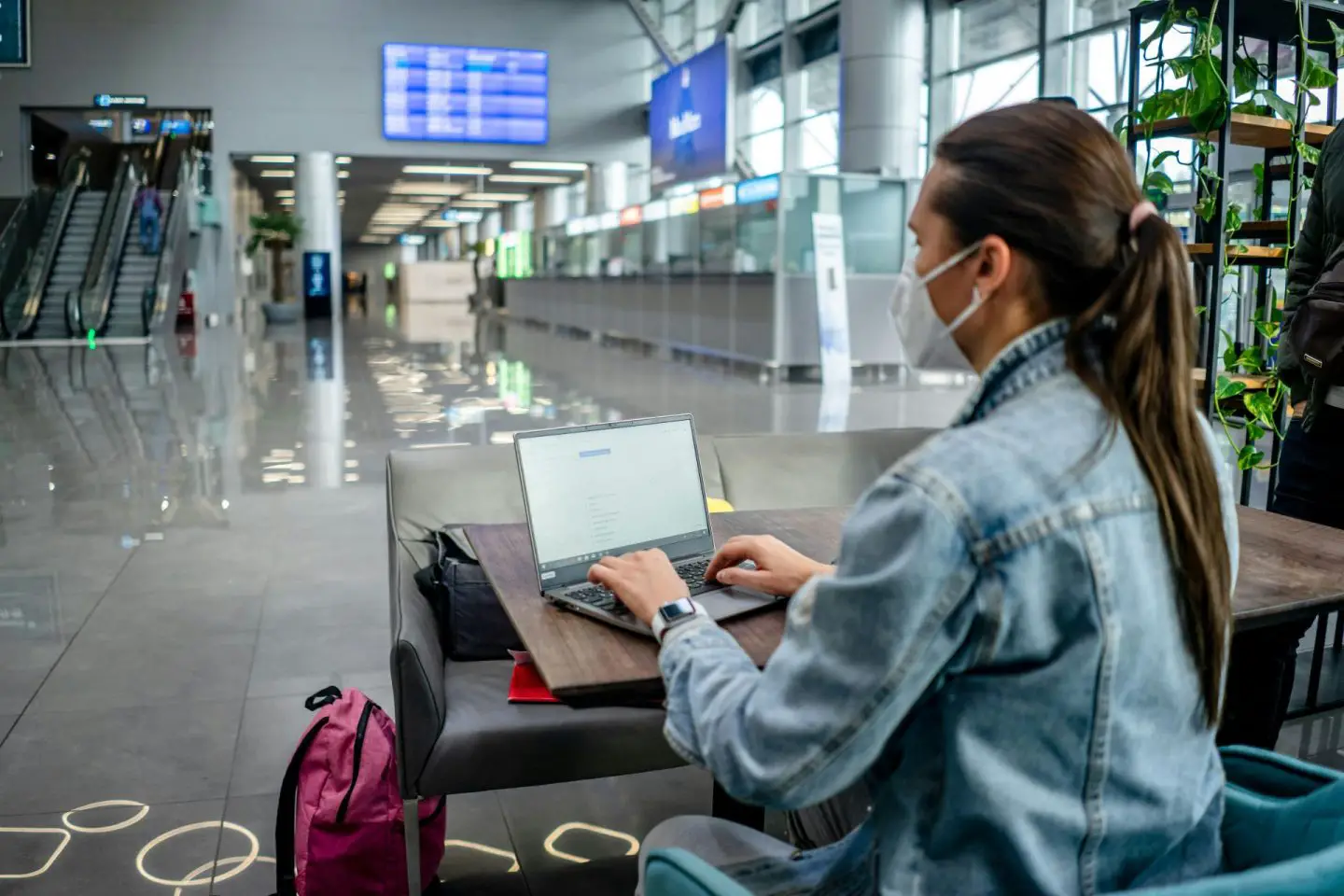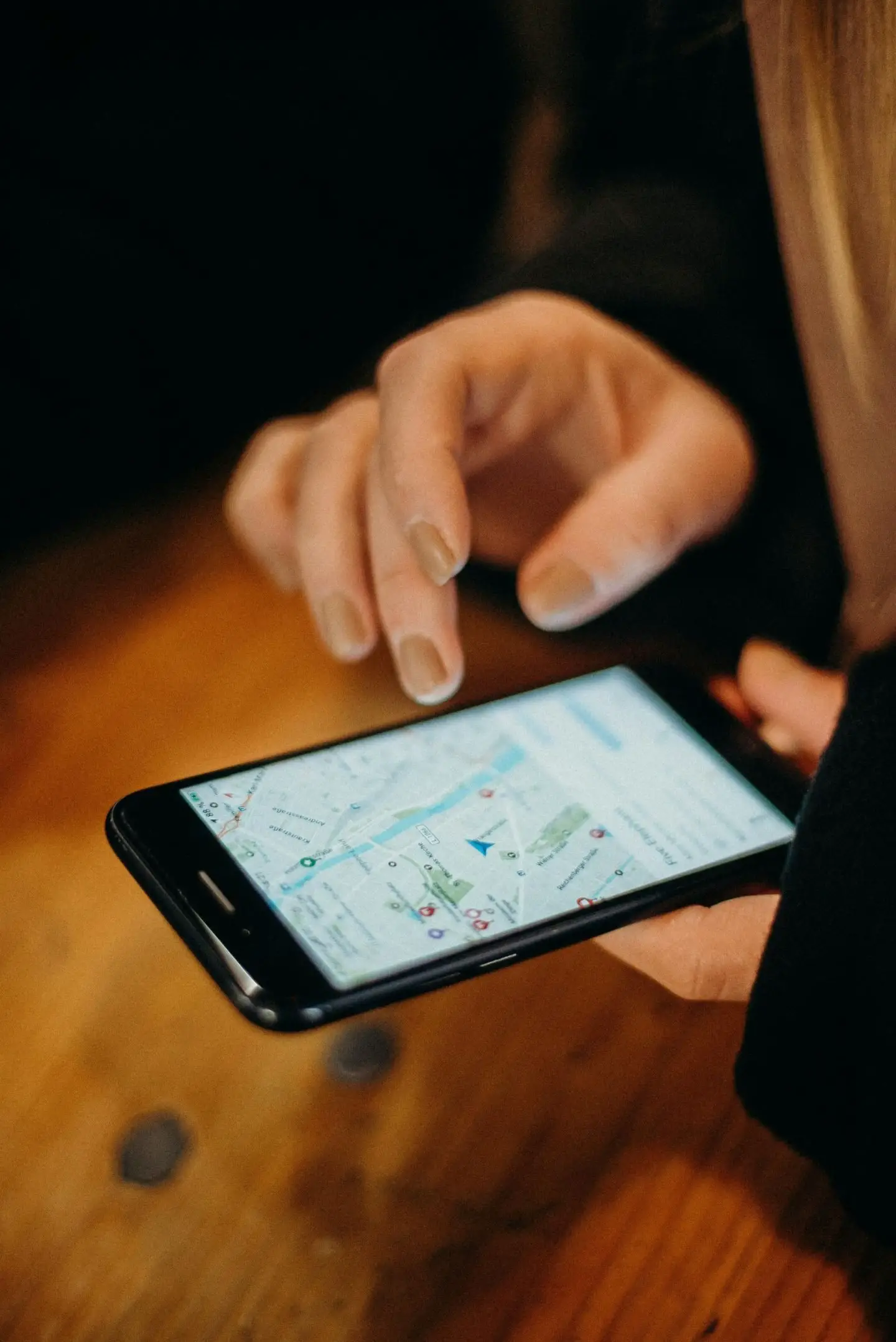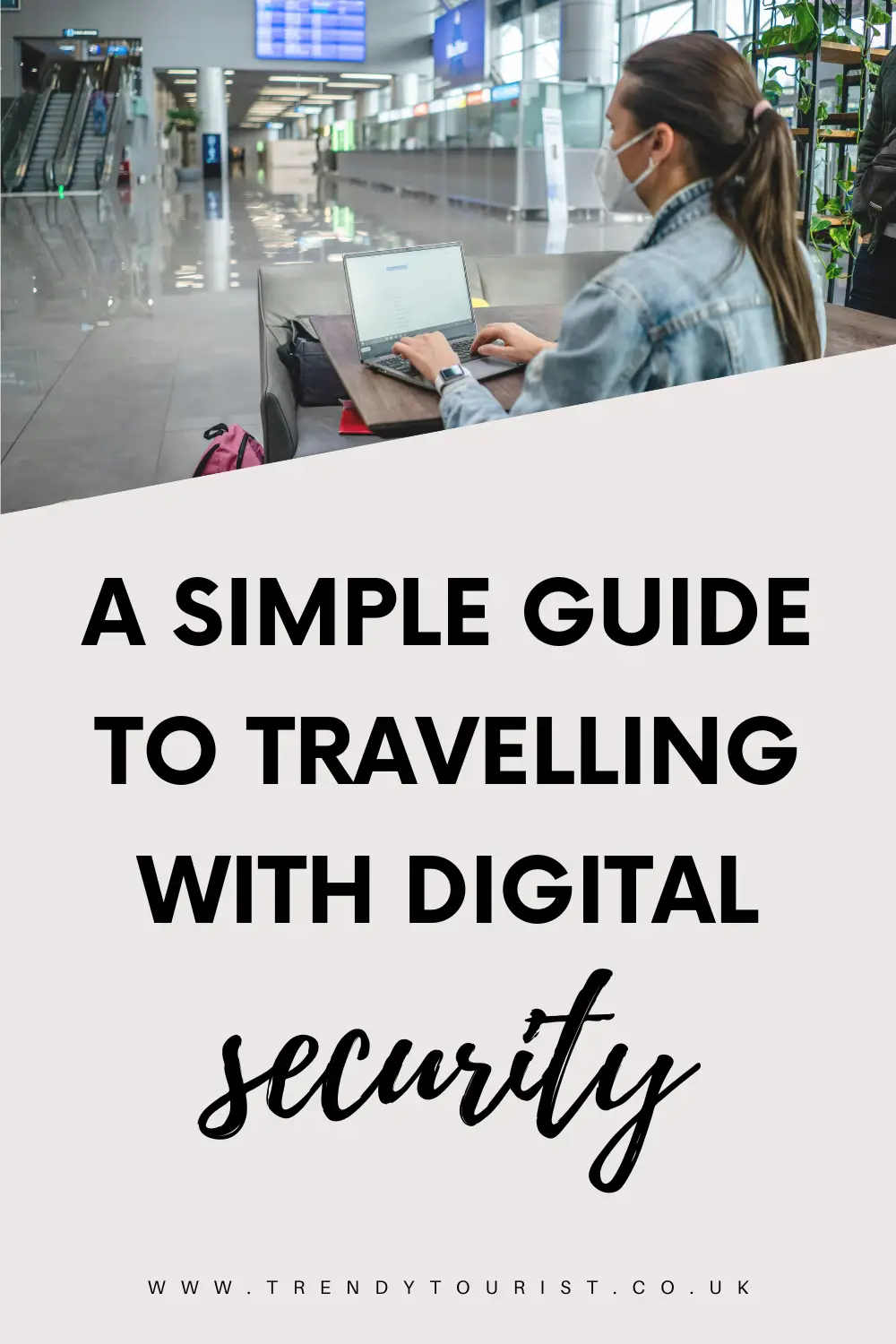In an advanced digital world that only continues to evolve, it’s important to think about cyber security as a traveller. When you’re travelling, cybercriminals or thieves can easily target your devices due to heightened exposure.
The scary thing is that cyber security threats are on the rise; therefore, understanding the essential tips for travel and knowing how to respond to a cyber attack is crucial.
Need some help in this area? Not to worry — here’s how you can improve your digital security for travel in 12 simple ways.

Digital Security Tips for Travel
Let me break these down for you.
1. Turn On Find My Device
Before heading out, make sure to activate the device tracking feature available on both Android and iOS. That way, if there is a problem, you can quickly erase data from your device.
2. Lock Down Your Devices
To enhance computer security while travelling and safeguard your devices from thieves, I advise you to use those handy secure identification methods.
Choose one (or a combination) of the following for your phone, computer and tablet: password, PIN, fingerprint or facial recognition.
3. Use Reliable VPNs
VPN is apparently one of the most popular and powerful tools for cyber defence. It encrypts data and redirects traffic through third-party servers so that it can’t be tracked.
There are even more advanced solutions, like decentralized VPN (dVPN). Their advantage is that there is no centralised management, minimising the risks of hacking, data leakage and other vulnerabilities. Result!
4. Don’t Take the Phishing Bait
To steer clear of travel scams, be cautious of phishing attempts like receiving suspicious texts or WhatsApp messages claiming you’ve been hacked or getting spoofed airline emails.
Always be wary of unsolicited communications and make sure to verify the source before sharing any information. If in doubt, don’t click the link!
5. Use Two-Factor Authentication
Two-factor authentication (2FA) adds an additional layer of security to your accounts, offering better protection against cybercriminals. If you have 2FA enabled, you won’t be able to log into your account using your password alone. You need at least two points of interaction.
This is why it’s a good idea; it adds an extra layer of protection for peace of mind. Most often this is a password and code from the phone (SMS, Call or 2FA Authenticator app).
6. Take Data Precautions
A handy tip to ensure digital safety is to only pack essential devices and store necessary information when travelling. This helps avoid cyber attacks or physical damage while you’re on the move and reduces the impact of any incidents.
Travelling for business? Check if your company’s IT department can provide clean devices to securely store confidential data and prevent unauthorised access. You can refer to your company’s travel policy or chat with your manager to find out more.
7. Use a Password Manager
Remember to bring your password manager and 2FA device along. We’ve all been there, but going through multiple “I forgot my password” processes can really ruin the fun.
Speaking of passwords, make sure you protect all your devices with a PIN or password like we talked about earlier. Also, consider using Firefox VPN if you enter passwords on websites through Firefox. A VPN will prevent data leakage; otherwise, no matter how strong the password is, there’s a possibility of it being intercepted.
8. Use the Wi-Fi and Bluetooth Сarefully
If you’re on a business trip and need to use Wi-Fi networks, it’s important to be careful about protecting sensitive company and client information. One of the easiest cybersecurity tips to follow is to avoid using public networks, especially the ones without a password. But if you really have to connect to one, make sure to ask the staff for the official network name and password.
Oh, and speaking of smartphone security, don’t forget to disable your Wi-Fi when you’re not using it. You should also turn off Bluetooth when you’re not using it to prevent any unauthorised access to your device and potential theft of information.
9. Update Your Software
Just a quick heads-up, it’s super important to keep your software up to date to avoid any potential vulnerabilities. Before you leave for your trip, make sure to finish any pending system updates and apply any pending updates as soon as you’re back.
Sometimes, these automated solutions might still ask you for permission to update and restart. Be sure to give them the green light before you head away to avoid any software vulnerabilities.

10. Minimise Location Sharing
When you’re out exploring new places, I know it’s tempting to update your social media accounts. But here’s the thing, sharing too much can actually put your safety at risk.
By letting everyone know where you are, you’re giving potential criminals information that you’re not home. To keep your belongings safe, including your devices, try to limit how much personal info you share online.
11. Download Apps Before You Leave
Some apps can be sneaky and actually get access to everything on your device, including your personal data, which can put you at risk of cyber attacks. So, to keep yourself safe, stick to downloading apps from trusted sources like Apple or Google stores.
And if you’re on a computer, go for the Microsoft or Apple app stores. Pirated apps are not only illegal in most places, but they can also expose you to malware. Not good!
12. Disable Auto-Connect
Lastly, did you know that most phones have this awesome feature that automatically connects you to Wi-Fi networks as you go about your day? It’s super handy when you’re here at home. But, when you’re travelling abroad, it’s not a good idea to use this feature.
Before your trip, make sure to change the settings on both your smartphone and laptop to manually connect to Wi-Fi whenever you want Internet access. That way, you’ll have more control and keep your devices safe.
Pin this article and save for later:

Final Thoughts on Digital Security Tips for Travel
While travelling, digital security becomes a genuine concern. It’s important to prepare for it before, during and after every trip you take.
By implementing the above tips, educating yourself about cyber security and remaining vigilant at all times, you already reduce the risk of becoming a cybercriminal’s victim.



Leave a Reply